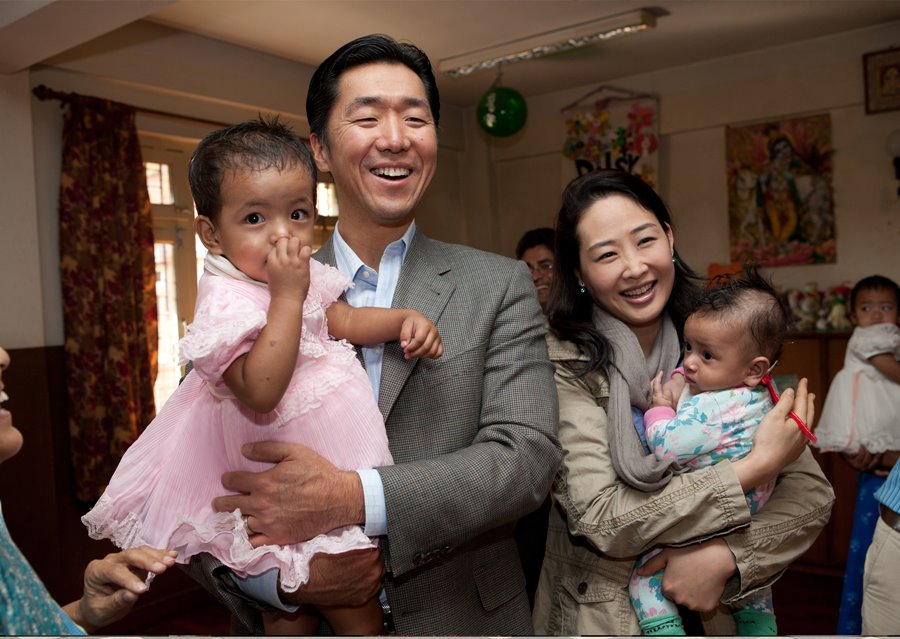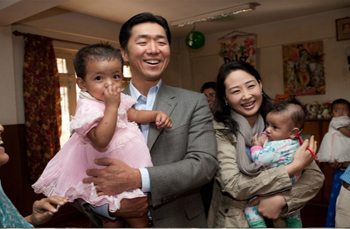
Dr. Moon and Mrs. Moon with children spend time with the children of Maiti Nepal in 2010.
The closest relationships in our lives are understood in familial terms. A close friend is like a brother or a sister. An elder mentor is like a parent. Our elderly neighbor is like our grandparent. The family is the school of love, where the virtues that underlie all positive social relations are learned.
During 2010, Dr. Moon described his family in the following way, “My wife and I have nine children, and we marvel at how unique each and every one of them is. Sometimes we ask ourselves, ‘How is it that this child has this kind of personality? Because it doesn’t seem like it represents your personality or my personality.’ We can only be thankful to God that He has presented us with this unique bit of humanity that we can cherish, love and adore. We believe that each of our children reflects a unique dimension of God’s character, and the unique dimension of humanity that we should be able to embrace. Such lessons from our family experience are what cultivate real leadership needed in the work for peace.”
Our innate love for our brothers and sisters, our parents, our grandparents, and relatives can be extended to include the people of society and the world. The natural conclusion is that humanity is one family. More fundamentally, we are bound together as family through our common spiritual origin, God. It is through recognizing God as the thread that ties us together that our fragmented human family can come together and recognize the fundamental rights and freedoms of every member.
Thus, the second pillar of the Global Peace Foundation (GPF) is strengthening families. GPF affirms that the family is not only vital to the well-being of the individual, but is also the foundation for global peace. Global Peace Foundation has strived to support the traditional institutions of marriage and family, both in public policy and through practical initiatives.
In the United States, the Strengthening Marriage and Family Coalition has organized multiple workshops and symposiums to draw together faith leaders, community and social workers and educators throughout the United States to form solutions to pressing issues like responsible fatherhood, healthy marriages and parenting support. In other nations, development projects like the Alllights Villages are economically empowering families and enabling them to become the centers for combating illiteracy.

